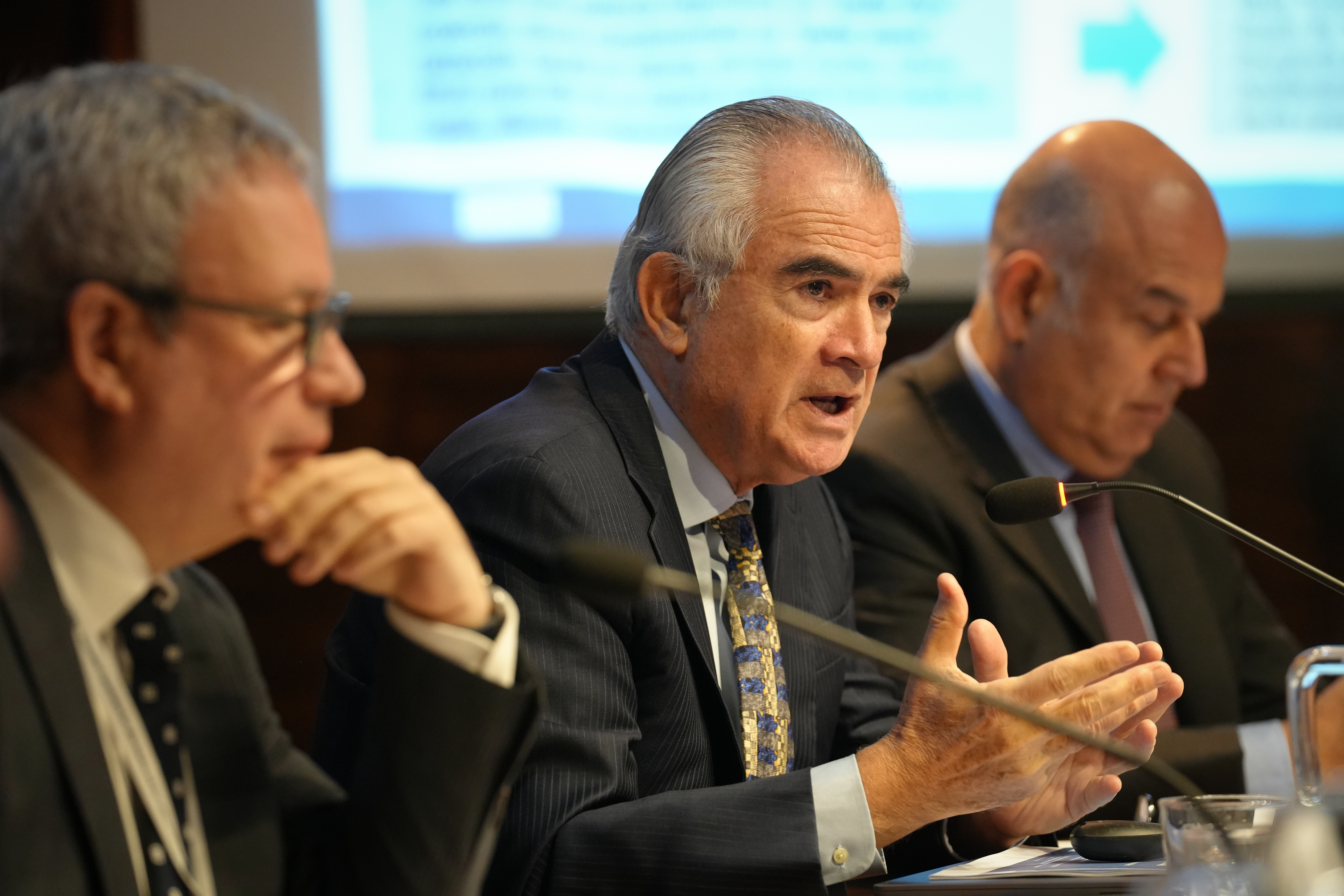Countries Urge for Strengthening International Development Cooperation by Promoting Innovative Mechanisms that Go Beyond Traditional Graduation Criteria
Work area(s)
At the closing segment of the Second Session of the Regional Conference on South-South Cooperation, authorities agreed that measuring cooperation among developing countries is key to enhancing their role on the global stage, increasing the efficacy of their public policies and making progress on fulfillment of the SDGs.

Latin American and Caribbean country representatives advocated today for strengthening international cooperation for development, promoting innovative mechanisms that would go beyond the traditional graduation criteria based on per capita income, and stressed the importance of considering multidimensional or vulnerability indicators that more accurately reflect the challenges faced by the region.
At the closing segment of the Second Session of the Regional Conference on South-South Cooperation in Latin America and the Caribbean – which was held at the main headquarters of the Economic Commission for Latin America and the Caribbean (ECLAC) in Santiago, Chile – the participating authorities agreed that measuring cooperation among developing countries is key to strengthening their global leadership, improving the effectiveness of their public policies and making progress on fulfillment of the Sustainable Development Goals (SDGs).
They further recognized that South-South and triangular cooperation are increasingly critical to bolstering the productive capacities of developing countries and have positive impacts on trade and financial flows, technological capabilities and the processes of social inclusion and combating inequalities.
During the event, this intergovernmental entity – a subsidiary body of ECLAC with the main purpose of contributing to supporting Member States on South-South and triangular cooperation initiatives – elected a new Presiding Officers for the 2025-2027 period, which is now made up of Chile as Chair and Costa Rica, Ecuador, El Salvador, Mexico, Peru and the British Virgin Islands as Vice-Chairs.
The session’s closing segment was led by Luis Fidel Yáñez, ECLAC’s Secretary of the Commission – who spoke on behalf of Executive Secretary José Manuel Salazar-Xirinachs – and Enrique O’Farrill Julien, Executive Director of the Chilean Agency for International Development Cooperation (AGCID), in the country’s capacity as Chair of the Regional Conference on South-South Cooperation.
In his remarks, ECLAC’s Secretary of the Commission emphasized that the Conference brought together delegations from more than 20 countries, along with representatives of the United Nations system, the academic world and development banks as well as other actors, to continue making headway on key issues for the region, from the perspective of international cooperation for development.
“I want to sincerely thank you for your presence and especially for the commitment with which you have contributed to this debate, with unwavering focus on our shared goal, which is to build well-being for all our citizens,” Luis Fidel Yáñez affirmed.
He added that despite the significant financial restrictions that are affecting the United Nations system, and ECLAC in particular, the regional Commission has redoubled efforts to keep its main capacities operational.
“In complex times, when multilateralism is facing threats and the principles of the United Nations Charter are being challenged, regional spaces for cooperation acquire even more relevance. Thank you for taking care of this space and strengthening ECLAC’s role. With the mandates you are giving us, you renew our mission: to continue working, as we have done for more than 75 years, for more inclusive, productive and sustainable development in Latin America and the Caribbean,” he concluded.
At the event, ECLAC presented a working document entitled Assessment and evaluation of South-South cooperation in Latin America and the Caribbean, which is a proposed plan of action that seeks to consolidate the measurement of South-South cooperation, led by the Global South.
In Resolution 2(II) of the Regional Conference on South-South Cooperation – approved by the participating delegates at the end of the Session – governments stress the importance of promoting, in the context of international development cooperation, a comprehensive approach to disaster risk management, with a gender perspective, based on the principles of preparedness, prevention, identification, mitigation and response, to reduce vulnerabilities, strengthen resilience, and enhance both the response capacity of humanitarian cooperation in the face of disasters and emergencies and the rehabilitation and reconstruction efforts of the countries and communities of Latin America and the Caribbean.
Furthermore, they requested that during the Fourth International Conference on Financing for Development – which will take place on June 30-July 3 in Seville, Spain – the multidimensional nature of development be recognized in addition to the wide range of development modalities, along with the risks and difficulties, which illustrate the need to deepen international cooperation to complement national policy efforts. They also urged for promoting the Latin American and Caribbean perspective in implementing the outcomes of that International Conference.
Finally, the countries reaffirmed the role of ECLAC as an essential component of the United Nations development system, and they stressed the importance of ensuring adequate regular budget resources in order to fulfill the Commission’s mandate.
Related event
Related content

International Cooperation is Essential for Building a More Productive, Inclusive, Sustainable, Just and Resilient Future in Latin America and the Caribbean
Today authorities inaugurated the Second Session of the Regional Conference on South-South Cooperation.
